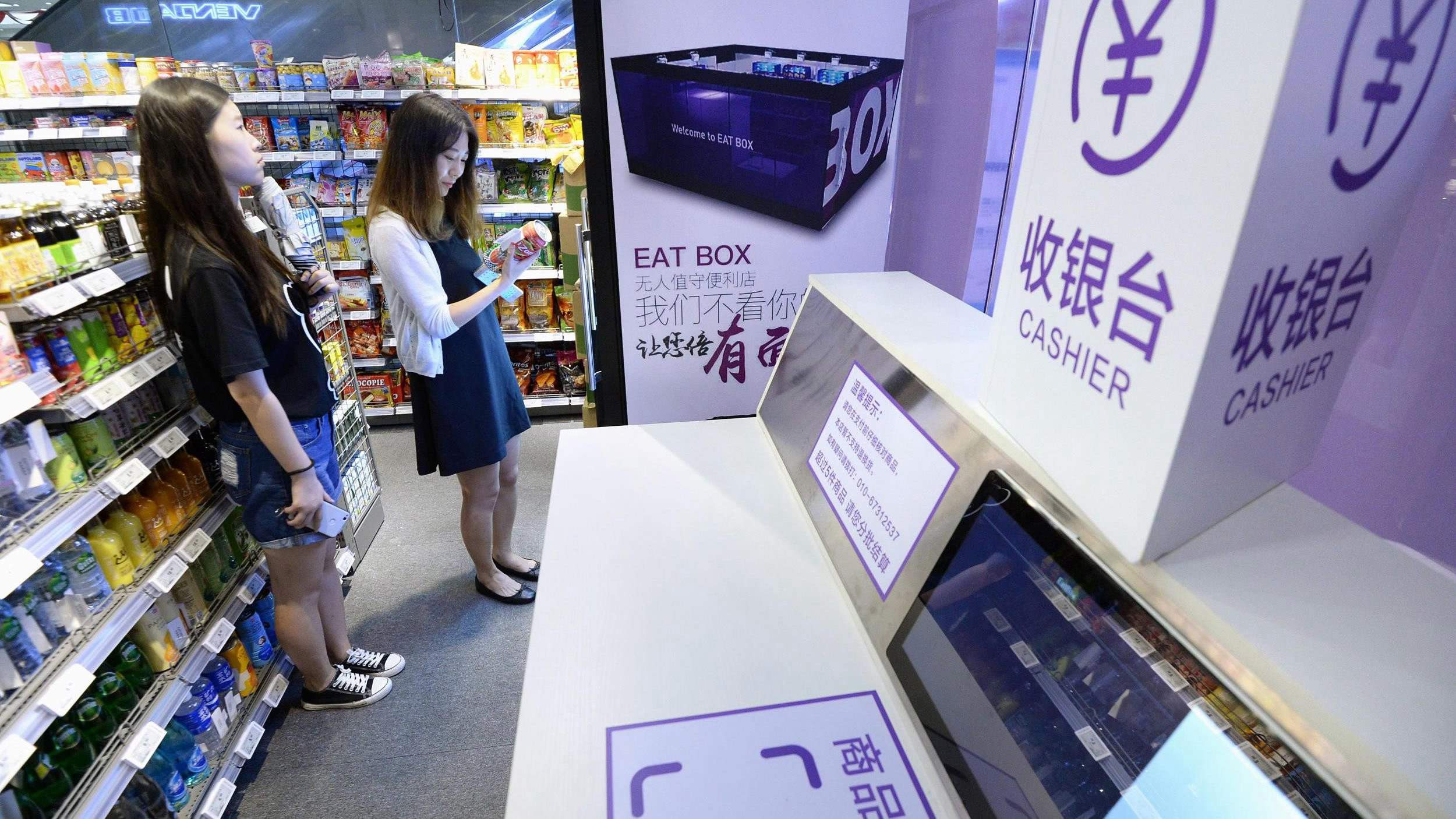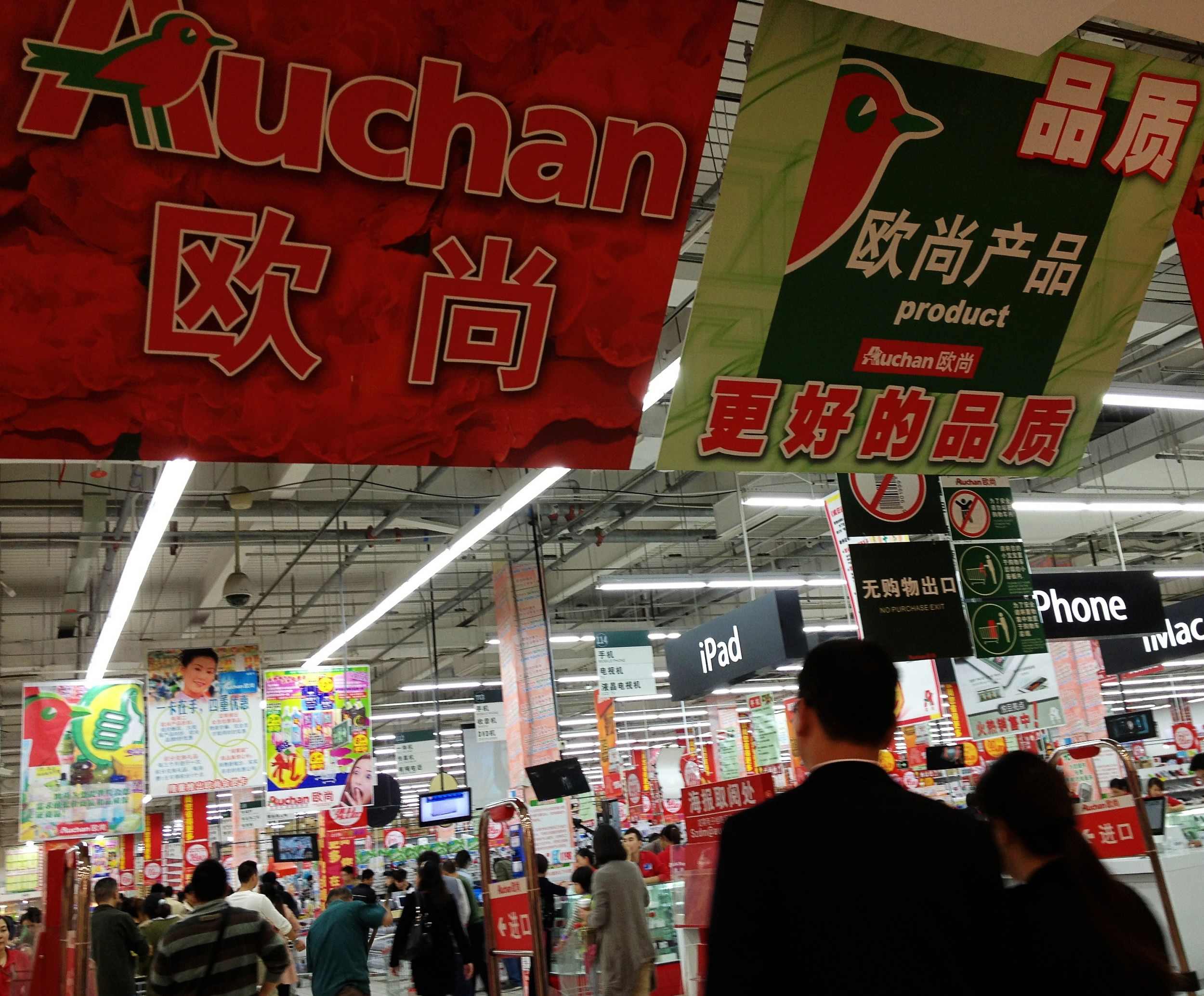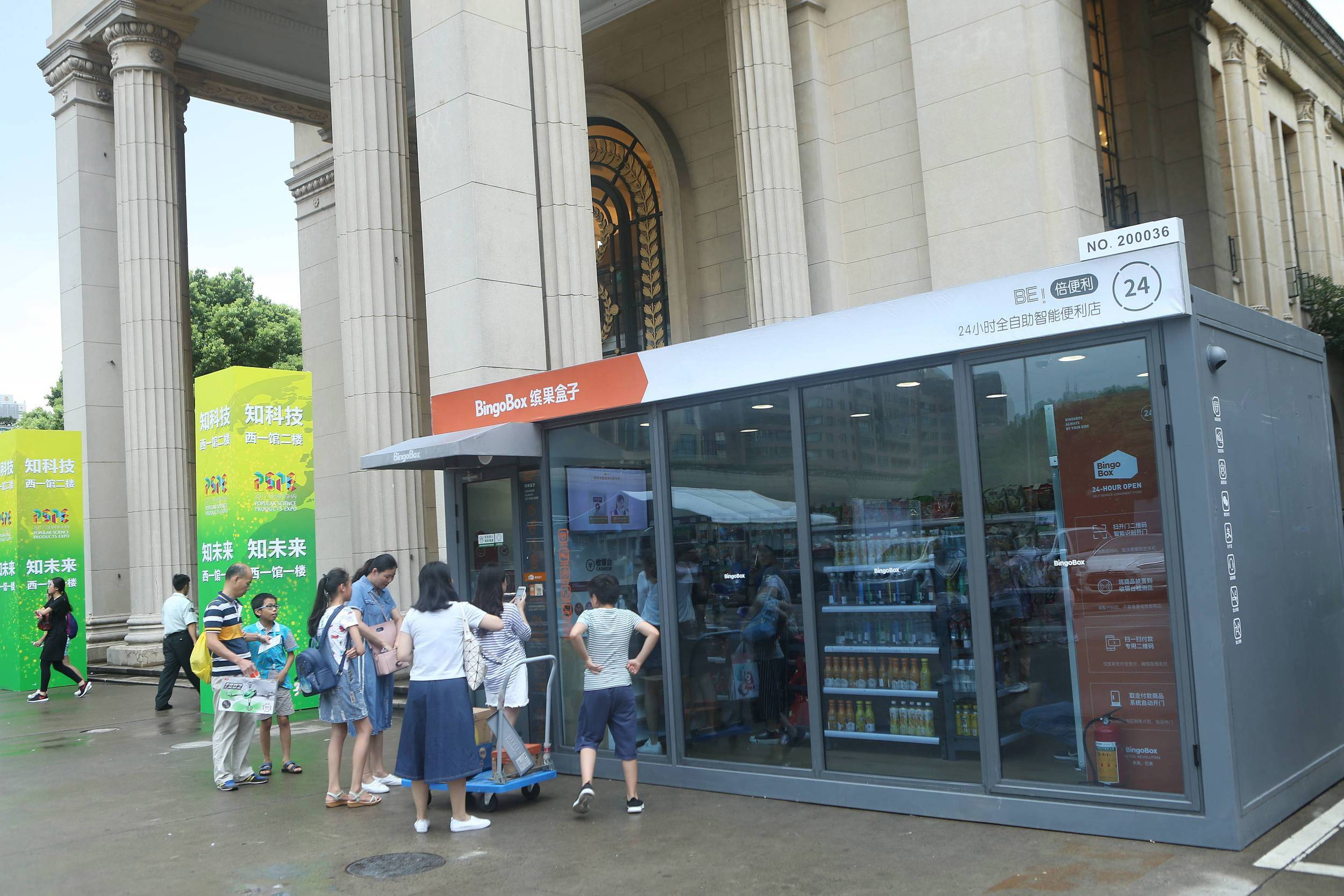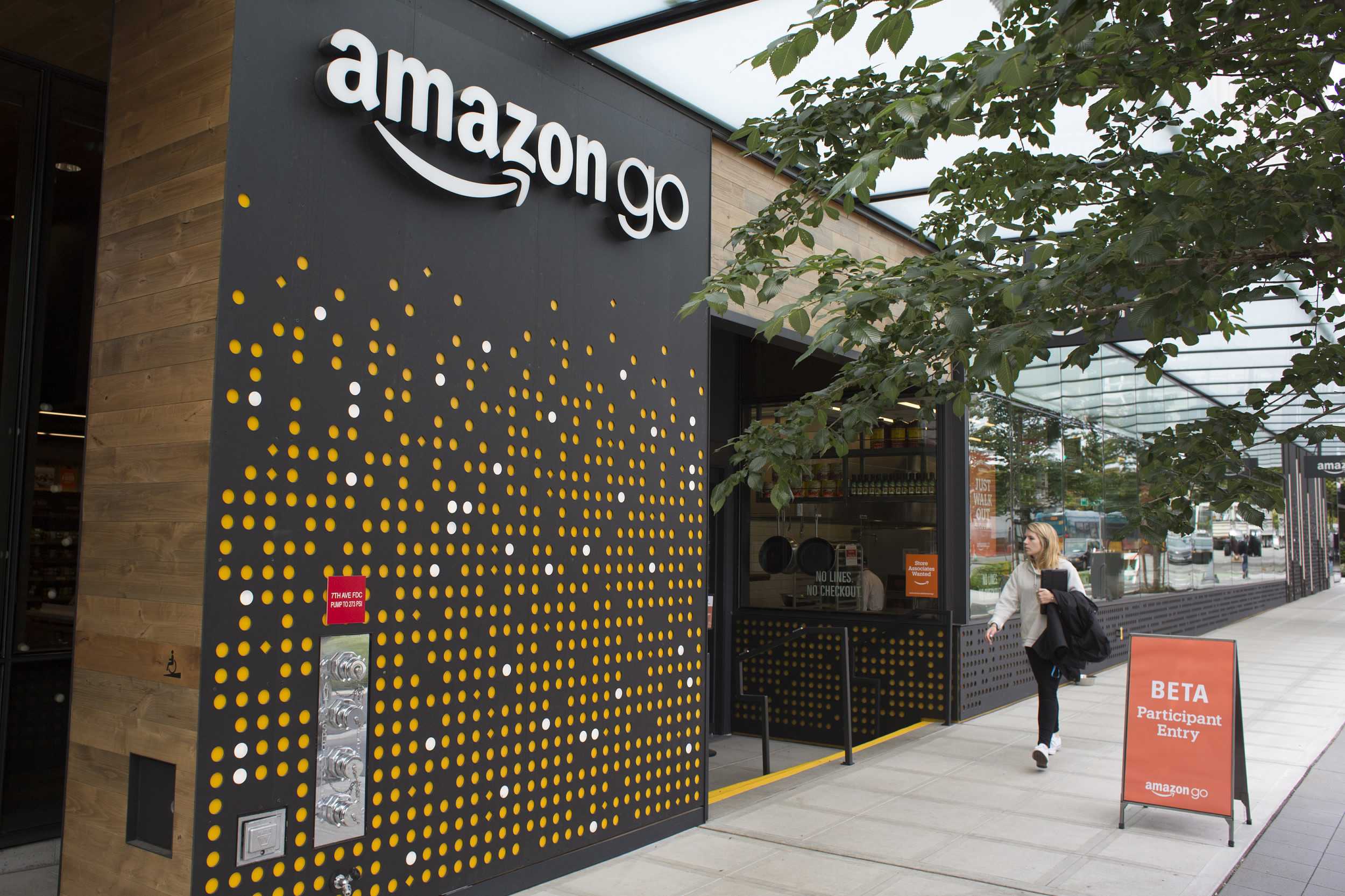
Business
17:41, 21-Nov-2017
Unmanned stores see China take the lead in next-gen retail
by CGTN's Nicholas Moore

While unmanned Amazon Go convenience stores have grabbed headlines in the West, China has quietly taken further steps to take pole position in forming the future of how we shop.
Major players in e-commerce and traditional retail – alongside several domestic start-ups – have already rolled out unmanned stores in major cities, but are they really the future?
The concept is simple, thanks to mobile payment technology. To enter the unmanned store, shoppers use their smartphones to scan a QR code on the door, pick up their purchases and use a mobile payment platform or app to foot the bill.
An alarm sounds if a customer attempts to leave without paying, and the lack of staff on the payroll translates into lower prices compared to traditional corner shops.
French hypermarket giant Auchan announced earlier this month that it was working with Chinese tech company Hisense to roll out unmanned convenience stores across the country. Auchan Minute will be an 18-square-meter shop that accepts Alipay and Wechat Pay in return for some 500 products, and the French chain plans to establish hundreds of stores in China in the next few years.

Auchan currently operates 446 hypermarkets in China, making it one of the country's biggest supermarket chains. /VCG Photo
Auchan currently operates 446 hypermarkets in China, making it one of the country's biggest supermarket chains. /VCG Photo
Alibaba’s Jack Ma has been a consistent voice spearheading what he calls “new retail”, and the e-commerce titan is putting his money where his mouth is by announcing a new mall in Hangzhou, which will combine traditional shopping with next-generation online technology.
With the five-story mall set to open in April 2018, other Chinese startups are looking to beat Alibaba at their own game and establish themselves first. Guangdong-based BingoBox has ambitious plans to build 5,000 stores in the next year after securing 14.5 million US dollars in a fundraising round in May.

A BingoBox store in Shanghai, August 2017. /VCG Photo
A BingoBox store in Shanghai, August 2017. /VCG Photo
BingoBox currently operates unmanned stores in Zhongshan, Beijing, Shanghai, Xi’an and Chengdu, and all of its stores are built to the same 15-square-meter standard.
According to BingoBox’s website, operating costs are as low as 2,500 yuan (375 US dollars) per month, compared with 15,000 yuan (2,260 US dollars) for a traditional convenience store. Overheads like electricity consumption and salaries are cut dramatically, translating into cheaper goods.
However, the business model of lowering costs as much as possible has already had teething problems. A lack of air conditioning inside two Shanghai BingoBox stores during the summer caused goods inside to melt, leading to customer complaints.
Meanwhile, a report by TechNode looking at how BingoBox works found customer confusion and technical problems. With only one till available, technical glitches mean delays to other customers waiting to pay for their goods.
A study by Huatai Securities in August found that while customer numbers were still low, BingoBox had potential. Huatai found that 16 paying customers used the store in one average afternoon hour, and estimated that the store brought in revenue of 1017.80 yuan (153.43 US dollars) per day. However, if stores increased in size and scale and were made more accessible to more customers, then profit margins would increase from Huatai’s current estimate of 2.26 percent.
Operating at such low margins on low-cost produce is however a risk, especially when unexpected costs (such as a need for air-conditioning) are factored in. BingoBox insists there has not been one theft since its first store opened in 2016, but such stores are clear targets for crime, no matter the amount of surveillance technology installed in each store.
Other concerns over stores like Auchan Minute and BingoBox are the use of personal data and information. Tech giants like Alibaba already have access to a huge amount of data about their Chinese customers, and unmanned stores will force consumers to go cashless and share that data.

The Amazon Go prototype store in Seattle, the US. /VCG Photo
The Amazon Go prototype store in Seattle, the US. /VCG Photo
Several studies suggest Chinese consumers are less concerned about data privacy than Western consumers. Boston Consulting Group in 2014 found that only 17 percent of Chinese consumers considered their purchase histories as moderately or extremely private, compared to more than half of Americans, Australians and Canadians. Therefore, if unmanned stores hit off in China, their business models may struggle to expand overseas without allaying these concerns.
China has not adopted in-store self-service checkout technology on the same scale as countries like the UK and Singapore. In 2015, a Sina survey found 73.8 percent of netizens felt self-service supermarkets were unfeasible in China.
It remains to be seen whether or not consumers in the country will be willing to see unmanned convenience stores as a vital part of how they shop, rather than just a one-off curiosity.

SITEMAP
Copyright © 2018 CGTN. Beijing ICP prepared NO.16065310-3
Copyright © 2018 CGTN. Beijing ICP prepared NO.16065310-3